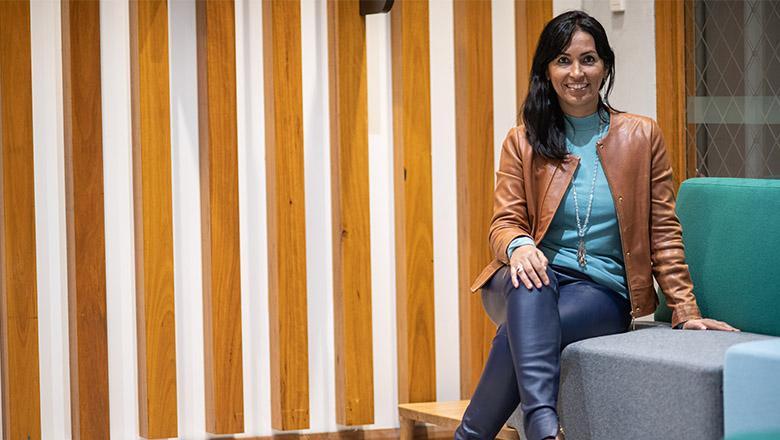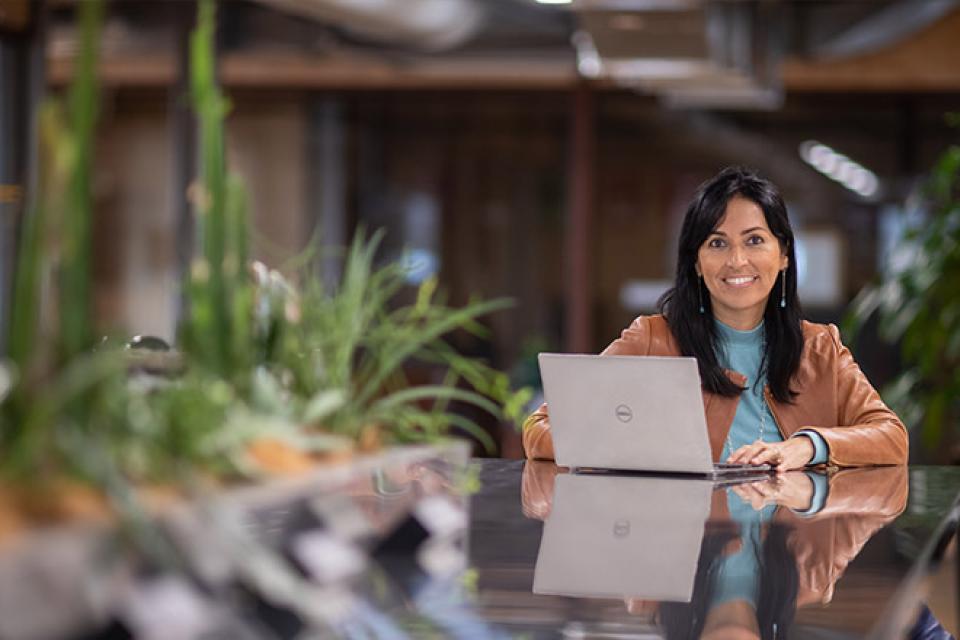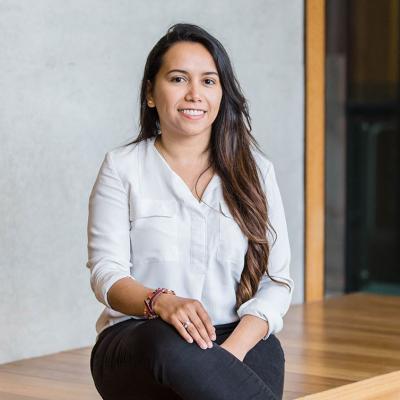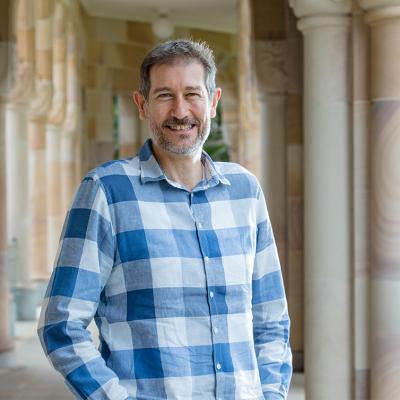If you’re bored or frustrated with companies greenwashing to grab your attention, you’re not the only one. Natalie Hurtado is paving the way to a net-zero carbon future – one corporation at a time.
Master of Entrepreneurship and Innovation graduate Natalie Hurtado helps corporations make real environmental change rather than token gestures. The planet needs businesses to walk the walk, and Natalie is building the path for them.
“The most urgent challenge the world faces is climate change,” she says.
“It’s a huge issue that requires many different approaches to break down the problem into several steps.”
“We need people, corporations and governments to collaborate and cooperate towards the same goals.”
The rise of ARTEH
Teaming up with UQ Senior Lecturer in sustainable finance, Dr Saphira Rekker, and data scientist Hugo Mentzingen, Natalie co-founded ARTEH, a team of enthusiasts dedicated to helping businesses transition to a zerocarbon economy. The acronym stands for Assessment through Research and Technology to serve the Environment and Humanity. (It’s also an anagram of EARTH, for those word nerds out there.)
ARTEH was selected for UQ’s Ventures ilab Accelerator Program in 2021. Since then, the startup team secured support and partnerships with UQ and several other organisations such as:
- Multicom Resources
- EQ Resources
- Grant Thornton Australia
- Association of Mining and Exploration Companies (AMEC).
ARTEH offers clients several services to facilitate a journey to net-zero carbon. These services include data collection, emission calculations, science-based target development and automated reports.
“Once the companies have their climate targets set to become net-zero, we provide recommendations to achieve the targets in the reports,” says Natalie.
These recommendations centre around demonstrating a strong environmental business model and meeting environmental regulations (both existing and upcoming).
“This allows companies to disclose their climate-related risks and opportunities in their balance sheets, comply with financial regulators, and get global certifications.”

Why businesses need to take climate change action
Natalie sees every individual as having a role to play, but she also recognises that big businesses have some of the largest burdens to bear.
“Corporations are one of the elements of the puzzle,” she says.
“Their social responsibility is significant because they are organised emitters, and so they have the capabilities to shift the key and become organised mitigators.”
And Natalie believes taking genuine ecoconscious measures isn’t just a smart sales strategy anymore. It’s a survival strategy – commercial survival for the business itself and literal survival for life on Earth as we know it.
What can I do?
You don’t need to be the CEO or corporate sustainability officer of a large company to make a difference. Your choices as a consumer matter, and you can make impactful decisions by getting better informed about a company’s:
- purpose
- social responsibility
- supply chain management
- end-of-life product disposal.
If a business doesn’t prioritise or even communicate about these items with transparency, Natalie suggests letting your money talk by switching to a company that does.
“People can require accountability, prompting positive changes.”

Want to do something more radical, like founding a startup that addresses climate change action? Doing so might be more within reach than you realise, even if you don’t have a background in business or sustainability.
Innovation and entrepreneurship skills to initiate change
Nobody in Natalie’s family had ever been an entrepreneur. Neither had she before founding ARTEH.
“All I know about entrepreneurship came from my studies at UQ,” she says.
“In the Master of Entrepreneurship and Innovation, I learnt that anyone can be an entrepreneur. It’s a matter of following a methodology with discipline and learning how to embrace uncertainty.
“I learnt about these skills and practised them so much that I felt confident enough to do it myself. The practice came from the courses I took and the various extra-curricular UQ Ventures programs I participated in, like Idea Hub, Startup Academy and LeadHers."
“By combining my actuarial and finance training with the skills I learnt in this entrepreneurship master’s program, I decided to launch my sustainability career.”
And look where this journey has already taken her.
Thanks to organisations like ARTEH, Natalie still has hope for a sustainable future powered 100 per cent by renewable energy. We may one day live in a world where most businesses are net-zero companies and society consumes less through wise choices. Strict corporate sustainability policies could keep global warming well below 2°C for centuries to come.
The cities of this ideal world prioritise walking, cycling, smart buildings, parks and accessible public transport. Every government decision benefits people and the environment. And eco-balanced lifestyles are mainstream – permaculture and circular economies are the norm.
No, this is not the world we live in today.
But with good choices, better business leaders and more people like Natalie, maybe one day it could be.
Discover the Master of Entrepreneurship and Innovation Explore UQ's postgraduate programs





